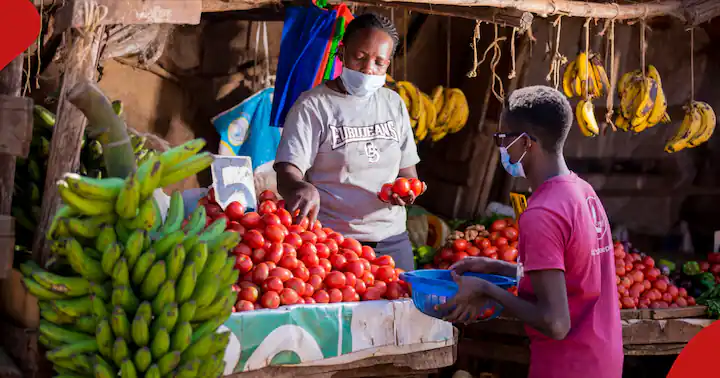
Latest data from the Kenyan National Bureau of Statistics (KNBS) shows that Kenya’s economy witnessed a 5.9% growth in the third quarter (Q3) of 2023, significantly driven by a rebound in the agricultural sector.
The data also reveals a drop in the price of most basic food commodities, compared to last year, the same period.
The driving force behind this impressive growth was the remarkable rebound in agricultural activities, which had contracted in 2022, boosted by the distribution of free fertilisers to farmers across the country.
The recovery of agriculture has led to improvements in food supply and coupled with monetary policy tightening has helped reduce inflationary pressures.
The statistics revealed food commodities that recorded a decline in the last year including fortified maize flour reduced by 3.7 per cent sugar reduced by 1.7 per cent and maize grains by 2.2 per cent.
Leading on the list of food prices that have dropped are mangoes which have recorded a decrease with one kilogram recording 5.7 per cent followed by potatoes with a kilogram price reducing by 4.9 per cent.
Loose maize flour also recorded a 1.2 per cent decrease in price per 1 kilogram followed by tomatoes which recorded a decline of 1.3 per cent per 1 kilogram.
The last two commodities that recorded a slight decrease over the last month were 2-kilogram wheat flour and fresh unpacked 1-litre cow milk both reducing by 0.7 and 0.5 per cent respectively
In 2023, tourism continued to expand, credit to the private sector improved and manufacturing activity is expected to improve from the anticipated growth in agro-processing sector.
The economy however still faces several challenges to sustain its growth momentum such as heightened fiscal and external vulnerabilities manifested through high public debt, elevated cost of living, exchange rate pressures, global economic uncertainties, and tight global financial conditions.






